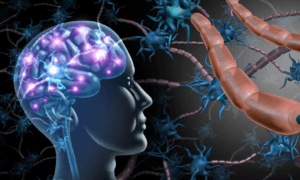Although cognitive decline is inevitable in aging, emerging research suggests that the senior years may not be all doom and gloom for our brain power.
Which Mental Skills Peak and Which Wane
Our mental abilities don’t uniformly decline as we age. Although fluid intelligence—the ability to think quickly and recall information—peaks around 20 and gradually decreases, one recent study suggests a more nuanced picture.Attention Deficits Versus Knowledge Gains
Cognitive abilities can be divided into two types: fluid reasoning and crystallized knowledge.Fluid reasoning involves “cognitive control”—the ability to actively pay attention, learn new information, process it quickly, and remember what was learned, according to Christopher Christodoulou, a clinical and research neuropsychologist at the Stony Brook Center of Excellence for Alzheimer’s Disease. These abilities tend to decline with age, though not at the same rate for everyone.
On the other hand, crystallized knowledge refers to skills and information that people have learned and practiced over time.
“These well-established habits—these things can remain strong,” Mr. Christodoulou told The Epoch Times, citing examples such as vocabulary and semantic knowledge. Older adults may struggle to recall specific details or words as easily, but they often still recognize and possess that underlying knowledge, he said.
The Power of Cognitive Games
Some evidence suggests that cognitive decline can be delayed or even reversed through mental training and exercises.Players improved their scores and processing speed throughout the 100 sessions, regardless of age. This suggests that older and very old adults can achieve improved cognitive performance through the real-life use of CMG. These games can include mobile app versions of popular games such as chess, Scrabble, or Sudoku.
Mental exercises are among the ways to maintain or even improve our cognitive abilities over the years, but “they’re obviously not the only thing,” Mr. Christodoulou said. Lifestyle factors such as physical exercise (especially aerobic), social interactions, and diet can also significantly contribute to keeping the mind sharp as we age, he said.







